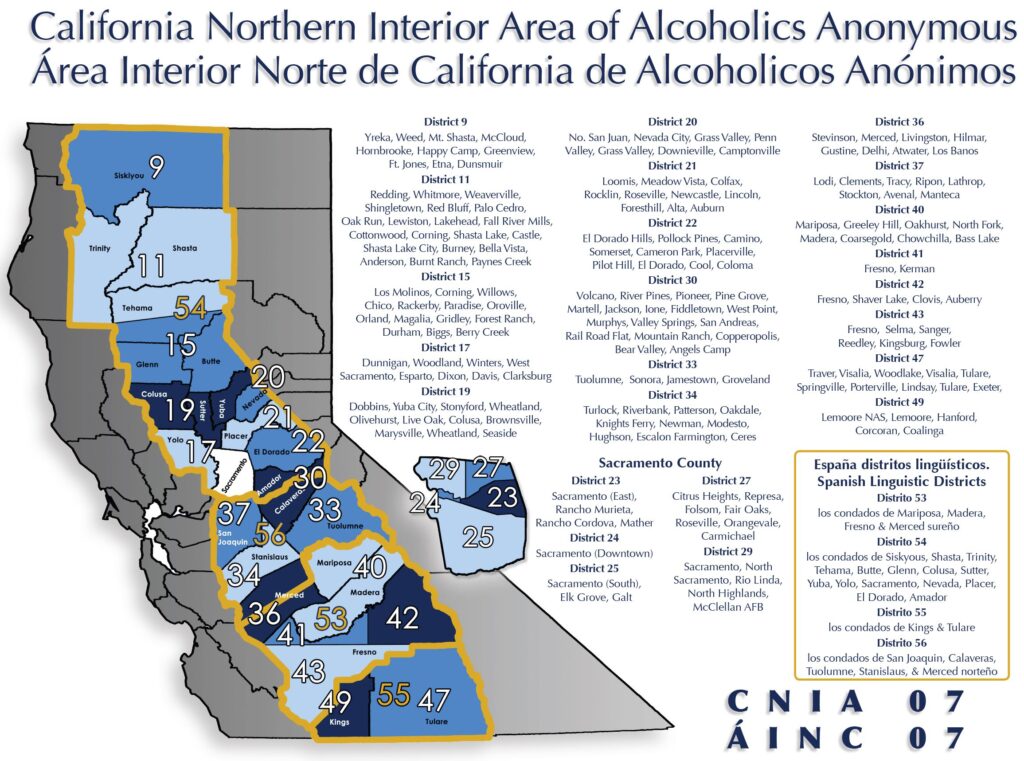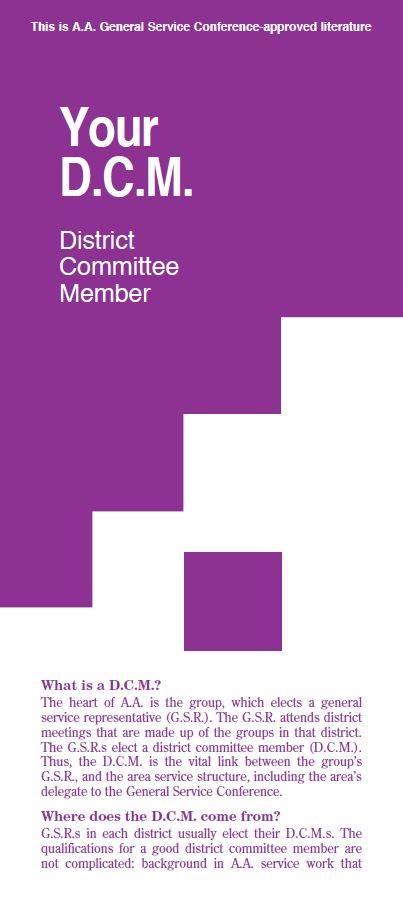What it means to be a DCM
The District Committee Member, or DCM, plays a vital role in general service. While the GSR is the
voice of a group, the DCM is the voice of a district. A district needs a leader. The GSRs will look to
the DCM for guidance on being GSRs and serving their groups. They will look to the DCM to lead on
forming an agenda for district activities. They’ll want to be inspired and encouraged, but not told
what to do.
A DCM who can set their own opinions aside in favor of listening and supporting the district’s GSRs
and of understanding and advancing the conscience of the district’s groups is practicing two important
principles of leadership in A.A.: leading by example and serving with humility.
The DCM learns the thoughts, wishes and needs of the district’s groups in different ways. Many
districts set aside time in their meetings for GSRs to give reports on what’s happening in their groups.
This gives the DCM the opportunity to listen, to ask questions and to make suggestions (and to follow
up to see if the suggestions helped).
The DCM also learns by visiting and communicating directly with the groups. Here, the DCM is serving
as a resource — and not as a replacement for a GSR. In a group without a GSR, the DCM may be able
to open a line of communication. Sometimes this stimulates interest within the group to want a GSR of
their own.
What the DCM learns will eventually form the conscience of the district. As a member of the area
committee, at area assemblies the DCM has the opportunity to express the district’s conscience in
more than one way:
- By asking questions and making suggestions on area business and proposing new ideas, perhaps for a new way to carry our message of recovery or a potential revision to a piece of A.A. literature. The District and Its District Committee Member
- By conveying the district’s conscience to the delegate on issues coming before the annual General Service Conference, the DCM can help to make the district’s conscience part of the delegate’s thinking.
- By voting on the area’s trusted servants, including the delegate position, and the area’s activities and budgets.
-taken from AA Service Manual


